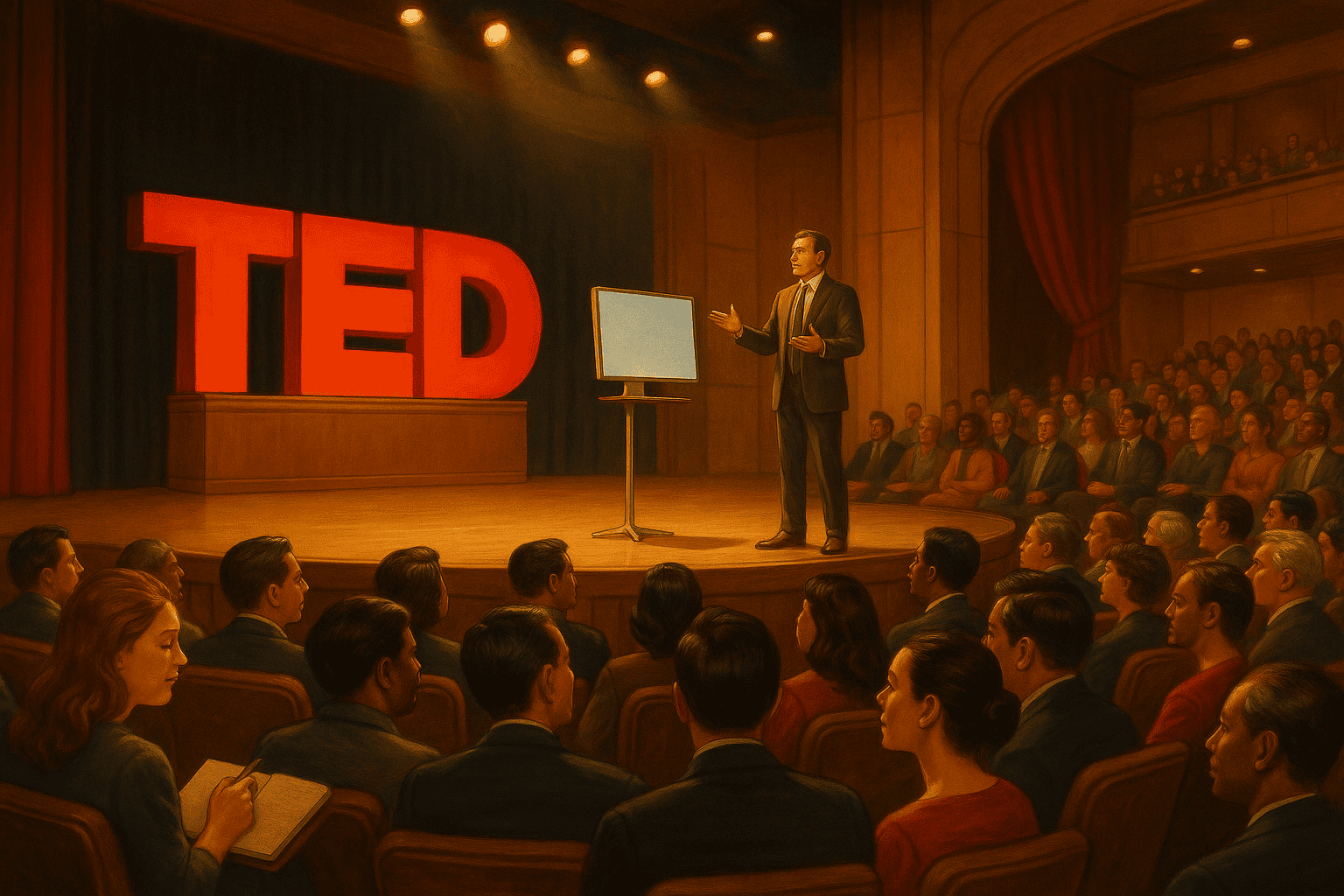
av Mikael Winterkvist | dec 24, 2025 | Bluesky, Mastodon, TED, Threads, Twitter

With a billion mobile phone users and a median population age of 19, Africa isn’t catching up to the AI revolution — it’s writing an entirely different playbook, says business leader Hardy Pemhiwa.
He shows how a generation of entrepreneurs is using AI to teach classes, triage patients and boost farm yields through the power of local compute, local data and local languages.

av Mikael Winterkvist | dec 17, 2025 | Bluesky, Mastodon, TED, Threads

We are living through what may be the largest economic bubble in history, spanning AI, cryptocurrency and tech company stocks, says financial analyst Henrik Zeberg.
He explores why the current AI-crypto bubble mirrors the great economic frenzies of the past, revealing the psychological forces behind them — and why it looks like we’re repeating the same patterns again.

av Mikael Winterkvist | nov 21, 2025 | Bluesky, Mastodon, TED, Threads

Two current US governors — Democrat Matt Meyer of Delaware and Republican J. Kevin Stitt of Oklahoma — trade notes on how to rebuild trust without partisan theater. In this special segment of ”On the Spot” (TED’s rapid-fire Q&A format), they share thoughts on leading when people live in different realities, swapping outrage for outcomes and why we need to govern like neighbors, not enemies.

av Mikael Winterkvist | nov 12, 2025 | Bluesky, Mastodon, TED, Threads

Artificiell intelligens förändrar allt – men till vilket pris? AI-experten Sasha Luccioni, som forskar om hållbarhet inom teknik, visar hur stora teknikföretags enorma datacenter förbrukar enorma mängder energi och skadar planeten. Hon presenterar ett starkt alternativ: små men kraftfulla AI-modeller som kan vända utvecklingen och göra tekniken smartare, rättvisare och mer hållbar.
Artificial intelligence is changing everything — but at what cost? AI sustainability expert Sasha Luccioni exposes how tech companies’ massive data centers are burning through energy and wrecking the planet. She introduces a powerful alternative: small but mighty AI models that could flip the script and make the technology smarter, fairer and sustainable.
Läs mer
TED: Hur tv-spel kan ge kraft åt ditt föräldraskap
Det här TED-föredraget är fullt av dåliga idéer

av Mikael Winterkvist | okt 14, 2025 | Bluesky, Mastodon, TED, Threads

Digital strategist Deja Foxx went viral for speaking up at a town meeting — and then learned the harsh cost of being in social media’s crosshairs.
She welcomes us to the “girl internet,” a growing ecosystem of women-led platforms that prioritize privacy, community and respect. ”We’re building a new, better way of being online, no matter your generation or your gender,” she says.

av Mikael Winterkvist | okt 6, 2025 | Bluesky, Mastodon, TED, Threads

What if the worst ideas turned out to be the most interesting? Mischief-making artist Gabe Whaley shares how he built a collective of artists whose seemingly bad ideas — like selling 5,000 keys to the same car — often go viral and sell for thousands of dollars. His playful experiments show why it’s worth leaning into the absurd … because you never know what might happen.
